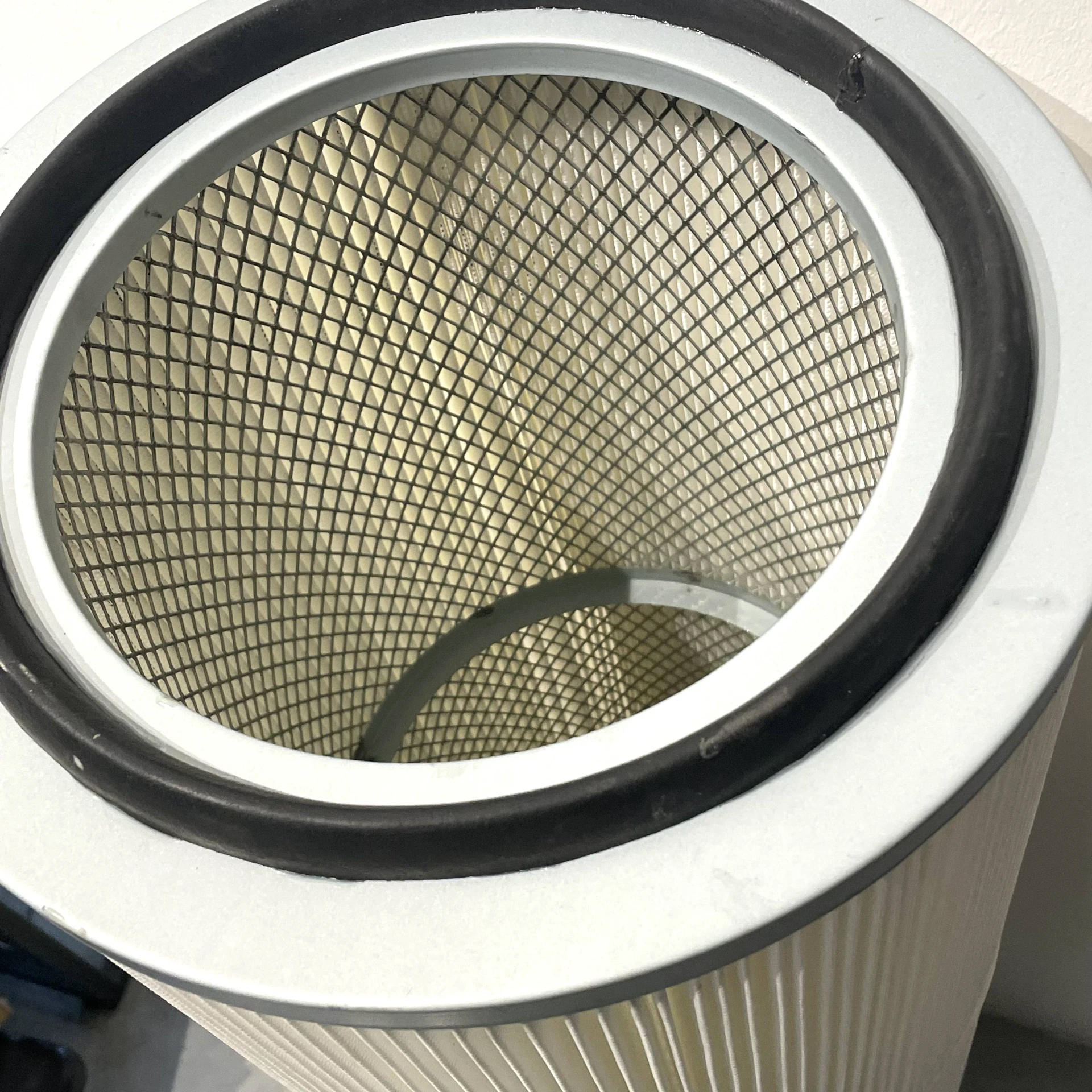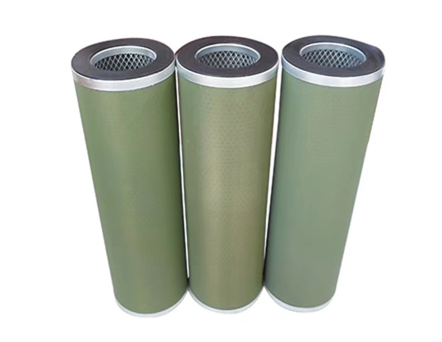 Tel:
+8618931101301
Tel:
+8618931101301
6 月 . 10, 2025 16:03 Back to list
High-Efficiency Silo Filter Cartridge Durable Polyester Cartridge Filter for Dust Collection
- Introduction to Silo Filter Cartridge: Importance and Functionality
- Technological Innovations and Performance Advantages
- Comparative Analysis of Leading Manufacturers and Products
- Tailored Solutions: Customizing Polyester Filter Cartridges
- Real-World Application Scenarios and Success Cases
- Maintenance, Service Life, and Best Practices
- Conclusion: Selecting the Right Silo Filter Cartridge for Optimal Performance

(silo filter cartridge)
Introduction: The Role of Silo Filter Cartridge in Modern Industrial Processes
Efficient dust collection and air filtration remain critical in the bulk material storage and handling industries. The silo filter cartridge
stands as a foundational component ensuring the removal of airborne particulates during filling, unloading, and storage phases. Its significance has grown with tightening global environmental regulations and the ongoing drive toward cleaner operational standards. Latest industrial research indicates that optimized cartridge filters can reduce particulate emissions by over 97%, ensuring compliance with ISO 8573-1:2010 air quality standards and maintaining workplace air purity. Not only does this contribute to employee health and facility longevity, but it also reduces maintenance costs and downtimes caused by dust accumulation. In today's landscape, selecting the right filter solution offers tangible operational and economic benefits.
Cutting-Edge Technology and Outstanding Performance
Modern filter cartridges leverage advanced media, precision pleating, and structural engineering. Among the most prominent, polyester filter cartridge technologies stand apart for their chemical resilience, thermal stability, and high dust-holding capacity. Polyester filter media, especially when surface-treated with proprietary coatings, achieve mean filtration efficiencies of 99.9% @ 2 μm particle sizes — outperforming older cellulose-based options whose efficiency typically ranges between 90–95% for particles of similar sizes. Additionally, leading cartridge designs employ conical or oval pleat configurations, expanding the effective surface area and reducing differential pressure across the media, thereby prolonging service intervals by up to 30%. Electrostatic discharge (ESD) functionalities are increasingly integrated, a critical innovation for combustible dust applications in the food, pharmaceutical, and chemical industries.
Manufacturers and Market-Leading Product Comparison
The global market for industrial filter cartridges is projected to surpass USD 2.5 billion by 2028, driven by the surge in demand for reliable silo filtration solutions. Notable manufacturers include Donaldson, Camfil, WAMGROUP, and Mahle Industries, each bringing unique strengths in product design and customer support. The table below presents a comparative overview of flagship polyester cartridge filter models from these brands, based on technical specifications and performance data.
| Manufacturer | Model | Filter Media | Nominal Length (mm) | Filtration Efficiency (%@2μm) | Air Flow (m³/hr) | Service Life (months) | Maximum Operating Temp (°C) | Special Features |
|---|---|---|---|---|---|---|---|---|
| Donaldson | Ultra-Web SB | Nanofiber/Polyester | 1200 | 99.99 | 1600 | 18–24 | 80 | Antistatic, Water Repellent |
| Camfil | HemiPleat eXtreme | Polyester Synthetic Blend | 1000 | 99.95 | 1400 | 18 | 70 | Wide Pleat Spacing, Durable End Caps |
| WAMGROUP | POLYPLEAT SKY | Polyester | 900 | 99.9 | 1200 | 15 | 65 | UV Resistant, Quick-Mount |
| Mahle Industries | Filtration A1 | Polyester Fiber | 850 | 98.5 | 1100 | 12–15 | 65 | Low Pressure Drop |
The table highlights how technological differentiation translates to tangible operational benefits: Donaldson and Camfil lead with cutting-edge nanofiber blends and extended life cycles, whereas WAMGROUP and Mahle focus on robustness and cost-effectiveness for high-throughput applications.
Tailored Solutions: How to Customize Polyester Cartridge Filters
Operational requirements vary widely based on silo size, handled materials, environmental factors, and regulatory expectations. Manufacturers now offer detailed customization pathways for the polyester cartridge filter format, enabling clients to match their specific needs. Customization variables typically include diameter and length, filter media type and treatment (e.g., hydrophobic, antistatic), pleat geometry, end cap materials (galvanized, stainless steel), gasket selections, and connection interfaces. For instance, fine powders such as cement may necessitate cartridges with higher pleat counts and conductive media to mitigate the risk of dust explosions, while food-grade applications demand filters certified to FDA and EU standards. Brands like Camfil have reported a 15% reduction in total cost of ownership when optimized custom solutions are selected over off-the-shelf units. Consultative engineering support further ensures seamless retrofit and integration into existing facilities.
Application Scenarios and Success Stories
Polyester-based filter cartridges are deployed across cement, grain processing, plastic pellet, food ingredient, and pharmaceutical storage silos. In a 2022 retrofit at a German cement plant, integration of advanced polyester filter cartridge technology led to a 42% reduction in dust load, achieving continuous discharge below 5 mg/m³ — a significant leap from the previous 8.7 mg/m³. Similarly, a leading American bakery reported decreased allergen cross-contamination rates after upgrading to ultra-fine filter cartridges. In the plastics sector, an Asia-Pacific manufacturer achieved compliance with stringent regional indoor air standards by adopting hydrophobic polyester cartridges, leading to a 25% drop in unplanned filter maintenance events. These examples underline the versatility and critical performance of optimized filtration in enhancing both plant safety and operational efficiency.
Enhancing Longevity: Maintenance, Service Life, and Operational Guidelines
The overall performance of a silo filtration system hinges on adherence to scheduled maintenance and proper handling. While premium polyester filter cartridge products can last between 12 and 24 months (subject to dust loading and cleaning frequency), factors such as compressed air quality, humidity, and particulate characteristics play crucial roles. Automated pulse-jet cleaning extends cartridge lifespan and maintains stable airflow, preventing increased differential pressures that can force premature replacement. Industry guidelines recommend scheduled inspections every 90 days and pressure drop monitoring. Industrial audits reveal that facilities implementing predictive analytics for filter change-outs reduced unscheduled shutdowns by 18% and increased filter utilization rates by up to 22%. Proper disposal and material recycling options further complement the sustainability initiatives adopted by leading enterprises.
Conclusion: Choosing the Right Silo Filter Cartridge for Sustainable Productivity
The modern silo filter cartridge is integral to meeting operational efficiency, environmental stewardship, and regulatory compliance objectives. With advanced technologies such as surface-treated polyester media, customizable configurations, and robust after-sales support, decision-makers are better positioned than ever to address site-specific requirements. Data-driven product selection, corroborated by application case studies and vendor comparisons, forms the backbone of a successful filtration strategy. Investing in high-performance filter cartridges delivers improvements in air quality, production uptime, and cost efficiency while supporting safer and greener industrial environments.

(silo filter cartridge)
FAQS on silo filter cartridge
Q: What is a silo filter cartridge?
A: A silo filter cartridge is a replaceable component used to filter dust and contaminants from air inside material storage silos. It helps maintain air quality and equipment performance. These cartridges are commonly used in industrial and agricultural applications.Q: What materials are used to make polyester filter cartridges?
A: Polyester filter cartridges are primarily made from high-quality polyester fibers. This material offers excellent filtration efficiency and durability. They are suitable for both dry and wet filtration processes.Q: How often should I replace my polyester cartridge filter in a silo?
A: Replacement frequency depends on usage, dust levels, and manufacturer recommendations. Typically, it is advised to inspect and replace the cartridge every 6-12 months. Regular maintenance ensures optimal filtration and prevents equipment damage.Q: What are the benefits of using a polyester cartridge filter in a silo?
A: Polyester cartridge filters provide high dust retention, washable surfaces, and long service life. They are resistant to abrasion and many chemicals. This makes them ideal for demanding industrial environments.Q: Are silo filter cartridges easy to install and maintain?
A: Yes, most silo filter cartridges are designed for easy installation and replacement. They require minimal tools and maintenance. Proper care ensures efficient filtration and prolonged cartridge life.-
How to choose a high-efficiency air filter? Here comes a professional guideNewsOct.21,2024
-
Air filter: multi-field application, protecting fresh airNewsOct.17,2024
-
Carbon air filter: a green guard to protect air qualityNewsOct.16,2024
-
Can activated carbon completely remove indoor odors and pollutants in air purification?NewsOct.14,2024
-
How to filter air efficiently and ensure indoor air quality?NewsOct.12,2024
-
Activated carbon filter: the invisible guard of clean water lifeNewsOct.11,2024
 Email:
Email:






